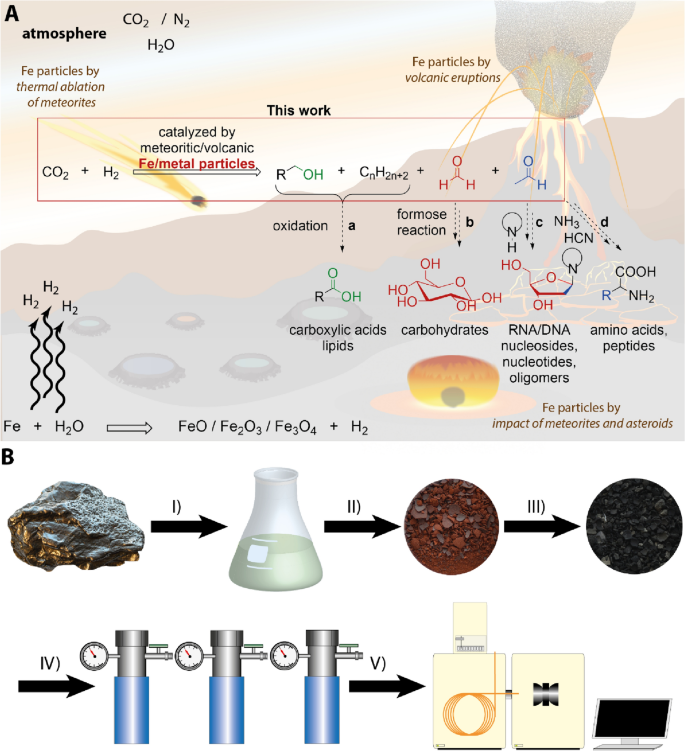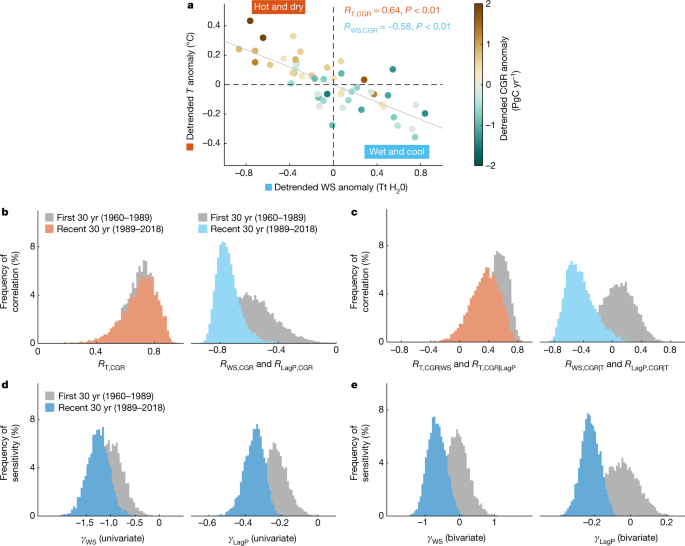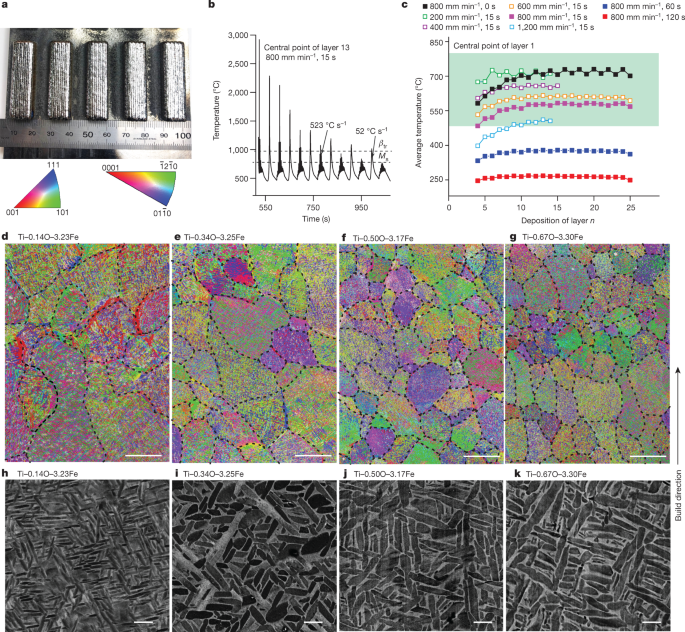2023-05-31 マックス・プランク研究所
◆彼らは、鉄粒子が触媒として働き、二酸化炭素豊富な大気から有機分子を生成する可能性があることを示しました。これらの有機分子は、生命の構成要素であり、地球に生命が生まれる過程の最初のステップであると考えられます。この研究は、初期の地球での生命の起源に関する新たな可能性を提案しています。
<関連情報>
- https://www.mpg.de/20330250/0522-astr-iron-life-earth-150980-x
- https://www.nature.com/articles/s41598-023-33741-8
隕石・火山粒子を用いた触媒反応によるCO2からのプレバイオティック有機物の合成 Synthesis of prebiotic organics from CO2 by catalysis with meteoritic and volcanic particles
Sophia Peters,Dmitry A. Semenov,Rupert Hochleitner & Oliver Trapp
Scientific Reports Published:25 May 2023
DOI:https://doi.org/10.1038/s41598-023-33741-8

Abstract
The emergence of prebiotic organics was a mandatory step toward the origin of life. The significance of the exogenous delivery versus the in-situ synthesis from atmospheric gases is still under debate. We experimentally demonstrate that iron-rich meteoritic and volcanic particles activate and catalyse the fixation of CO2, yielding the key precursors of life-building blocks. This catalysis is robust and produces selectively aldehydes, alcohols, and hydrocarbons, independent of the redox state of the environment. It is facilitated by common minerals and tolerates a broad range of the early planetary conditions (150–300 °C, ≲ 10–50 bar, wet or dry climate). We find that up to 6 × 108 kg/year of prebiotic organics could have been synthesized by this planetary-scale process from the atmospheric CO2 on Hadean Earth.



